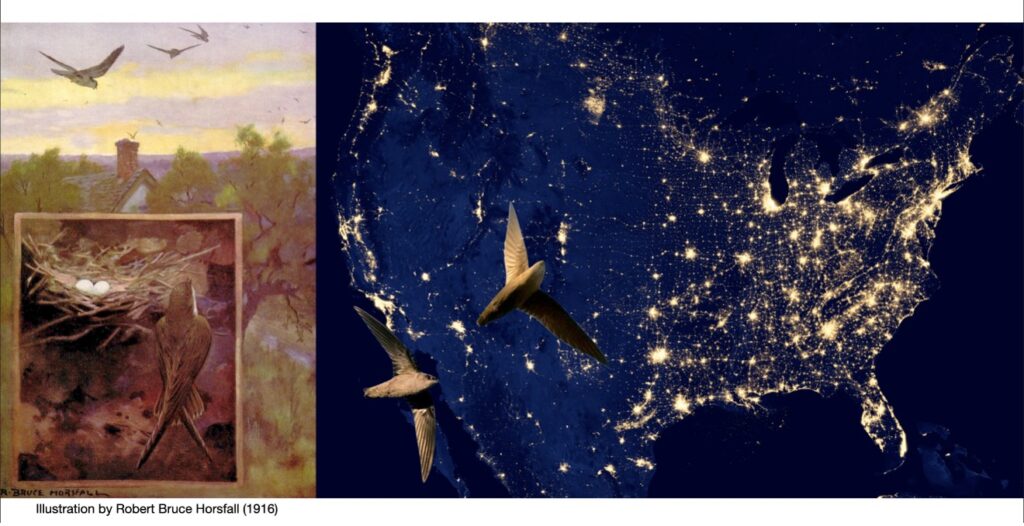The Effect of Light Pollution on Chimney Swift Roosting behavior
Presenters: Emma Dougherty and Elise Morton from Fairleigh Dickinson University
Light pollution is an anthropogenic factor that is rapidly increasing, posing serious threats to wildlife. Artificial light at night (ALAN) has been shown to impact behaviors and population dynamics of wildlife, often with negative consequences. One species of concern that we predict to be impacted by ALAN is the Chimney swift (Chaetura pelagica), a small aerial insectivore distributed across the Americas that often utilizes artificial structures such as chimneys for nesting, breeding, and roosting. Once abundant across its range, the Chimney
swift population has been steadily declining and is currently listed as Vulnerable by the IUCN, yet the causes remain unknown. Based on the finding that coordinated entry of roosting sites is signaled by the time of sunset, we hypothesized that ALAN would affect the roosting behavior of Chimney swifts, specifically that higher levels of ALAN will cause delayed entry into roosting sites and extend the time of foraging. To test our hypothesis, we recorded the time of entry into roosting sites distributed along a light pollution gradient in the New York Metropolitan Area and New Jersey.
Join us on April 16th from 1:30-3pm and we will share with you what we found, and how we can work together to learn how to conserve this amazing species.
This will be a hybrid program, both in-person at the Pavilion at the Visitor Center and also virtually on Zoom. Registration is required for both in-person and Zoom.
Register here at https://ttsu.me/swifts


